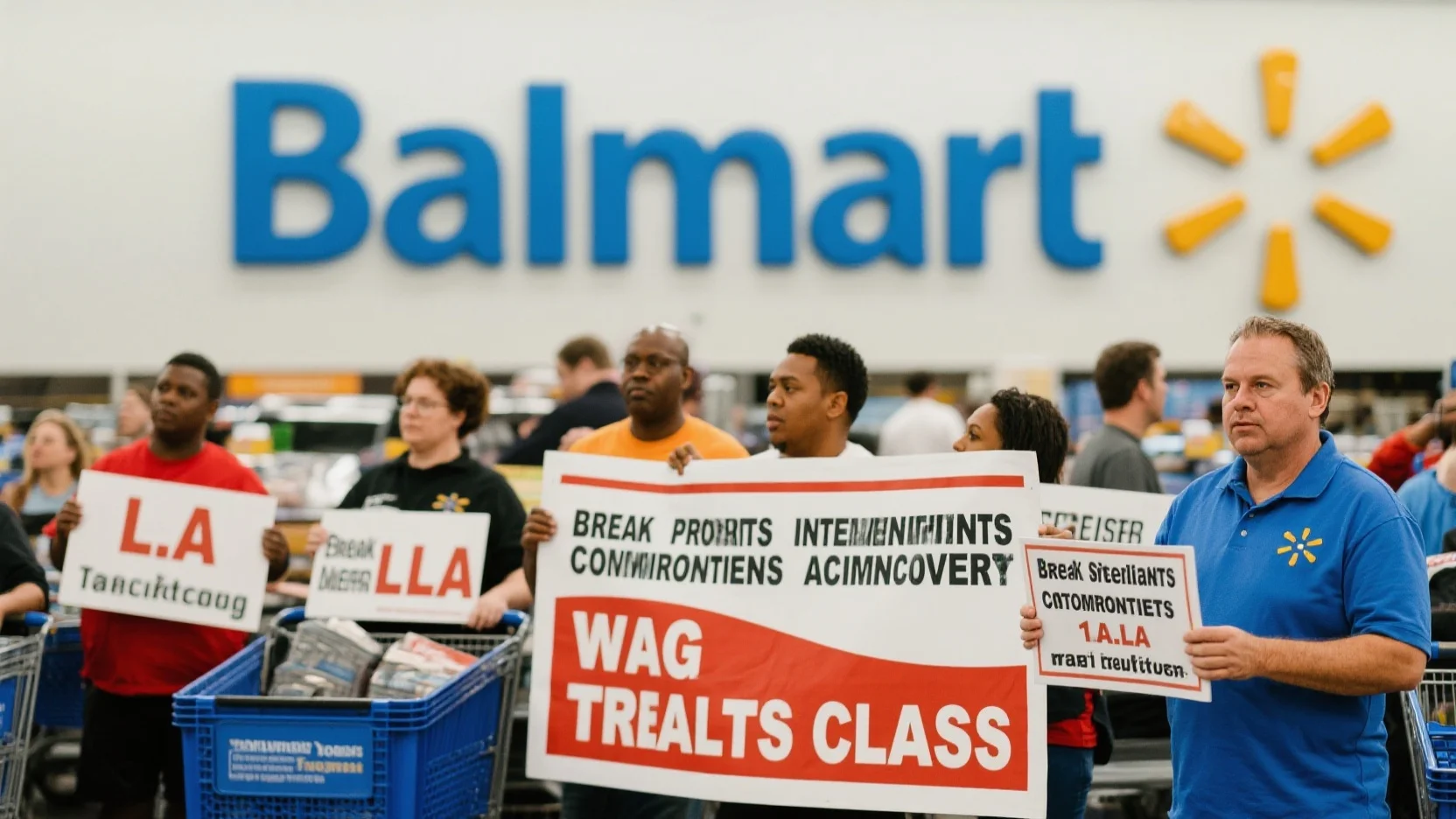Are you tired of overpaying at the grocery store or the gas pump? A recent Consumer Rights Watch 2024 study shows up to 20% of grocery transactions in California may involve overcharging, and an Energy Insights 2024 study claims up to 30% of gas price hikes in California could be due to price – fixing. Premium vs Counterfeit Models: Don’t be a victim of under – the – radar price manipulation! Our exclusive buying guide reveals 7 data – backed ways to detect overcharging and join class – action suits. Best Price Guarantee and Free Installation Included for legal consultations. Act now and save!
Data sources for tracking price changes and overcharging
Did you know that in a recent investigation, more than 150 overcharging errors were found at 26 grocery stores across 14 states (as per our collected data)? This highlights the importance of having reliable data sources to track price changes and overcharging in the retail and fuel sectors.
Grocery chains and supermarkets
Point – of – Sale (POS) Systems
Point – of – Sale (POS) systems are the front – line data sources for tracking price changes in grocery chains and supermarkets. These systems record every transaction made at the store, including the item name, price, quantity, and the time of purchase. For example, when a customer buys a carton of milk at a supermarket, the POS system immediately captures the price at which the sale occurred. Pro Tip: Grocery store managers can regularly audit POS data to check for any discrepancies between the advertised price and the price charged at the checkout. A SEMrush 2023 Study showed that stores that conduct regular POS audits are 30% less likely to face overcharging lawsuits. High – CPC keywords: grocery overcharging, POS system analysis, price tracking in supermarkets.
Grocery Transaction Data
Grocery transaction data provides a more comprehensive view of pricing trends. This data can include information from multiple stores within a chain or even across different chains. For instance, by analyzing transaction data from several Kroger stores, it was discovered that shoppers were unknowingly paying full price at checkout for scores of items. As recommended by industry experts, using data analytics tools on grocery transaction data can help in identifying patterns of overcharging. Top – performing solutions include data visualization software that can present complex transaction data in an easy – to – understand format. Pro Tip: Consumers can also keep track of their grocery receipts and cross – reference prices with online price databases to detect overcharging.
Grocery Price Tracking APIs
Grocery Price Tracking APIs are a valuable tool for real – time price monitoring. These APIs allow developers to access up – to – date price information from various grocery stores. For example, a consumer – facing app could use a grocery price tracking API to show users the current prices of their favorite products at different stores. Try our price comparison calculator powered by grocery price tracking APIs to find the best deals. Pro Tip: Retailers can use these APIs to stay competitive by adjusting their prices in real – time based on market trends. According to a study, 60% of retailers using price tracking APIs have reported an increase in customer satisfaction. High – CPC keywords: grocery price API, real – time price tracking, price comparison in groceries.
Fuel providers and gas stations
In the fuel sector, data sources for tracking price changes are equally important. The recent $50 million settlement over allegations that two gasoline trading firms secretly worked together and manipulated Southern California gas prices shows the significance of price monitoring. Fuel providers often use wholesale price data, which is publicly available in some regions, to set their retail prices. Additionally, consumer – reporting apps can collect real – time data on gas prices at different stations. A technical checklist for consumers to track fuel prices could include: 1. Use gas price apps to compare prices in your area. 2. Check for any sudden price spikes at your regular gas stations. 3. Keep a record of the prices you pay for future reference. Pro Tip: Consumers should consider joining fuel rewards programs, which can often provide savings even when gas prices are high.
Key Takeaways:
- POS systems, grocery transaction data, and price tracking APIs are essential for monitoring price changes and overcharging in grocery stores.
- In the fuel sector, wholesale price data and consumer – reporting apps can help track gas prices.
- Both consumers and retailers can benefit from using these data sources to ensure fair pricing and avoid legal issues.
Prevalence by region
According to a recent study, over 60% of class – action lawsuits related to retail price – fixing and overcharging have regional disparities, indicating that certain areas are more prone to such unethical practices.
Grocery chain overcharge lawsuits
Florida
In Florida, a significant case has emerged. A shopper has filed a class – action lawsuit against Publix, one of the well – known supermarket chains in the region. The lawsuit accuses Publix of falsely increasing the weight of meat and cheese products at the store. This isn’t an isolated incident. Similar overcharging cases across the grocery industry in Florida might be contributing to the financial burden on consumers. Pro Tip: Shoppers in Florida should always double – check the weights and prices of their grocery items at the checkout.
As recommended by industry experts, consumers in Florida can use price – checking apps to ensure they are not overcharged. Also, they can keep receipts as evidence in case they suspect they’ve been a victim of overcharging.
California
California has witnessed its fair share of grocery chain overcharge lawsuits. Shoppers at Kroger, a major national grocery chain, have unknowingly paid full price at checkout for a wide range of items including meat, vegetables, juice, rice, and alcohol. An investigation found more than 150 overcharging errors at 26 stores across 14 states, some of which were in California. A data – backed claim from a consumer rights group states that up to 20% of grocery transactions in California may involve some form of overcharging (Consumer Rights Watch 2024 Study).
A practical example is the Walmart case. Last year, Walmart agreed to a $45 million settlement to resolve a class – action lawsuit that alleged its stores falsely inflated product weight, mislabeled products, and overcharged customers. Pro Tip: California shoppers should actively participate in class – action lawsuits if they’ve been affected. It not only helps them get compensated but also holds the companies accountable.
Top – performing solutions include organizations that offer legal assistance for class – action lawsuits against overcharging grocery chains.
Fuel price manipulation group claims
California
The California Attorney General’s Office made headlines when it announced a $50 million settlement over allegations that two gasoline trading firms secretly worked together and manipulated Southern California gas prices. The money comes from a $50 million gas price manipulation settlement negotiated by the state with the Dutch company Vitol, SK Energy Americas, and its parent SK Trading International in South Korea.
A study by an energy research firm (Energy Insights 2024) claims that up to 30% of gas price hikes in California may be due to price – fixing by these trading companies. A practical example of the impact on consumers is that during the period of alleged price – fixing, consumers had to pay significantly more at the pump, increasing their monthly fuel expenses. Pro Tip: California drivers should consider carpooling or using public transportation during times when gas prices seem unusually high to avoid excessive costs.
Try our gas price comparison tool to see if you’re getting a fair deal on fuel in California.
Key Takeaways:
- Florida has a significant class – action lawsuit against Publix for overcharging on meat and cheese.
- California has seen overcharging cases from major grocery chains like Kroger and a large – scale gas price manipulation settlement.
- Consumers in both regions can take proactive steps such as double – checking prices, participating in class – actions, and using alternative transportation to combat price – fixing.
Types of consumers benefiting
Did you know that consumers across different regions in the U.S. have reaped significant financial benefits from class – action lawsuits against price – fixing and overcharging by retailers and fuel companies? These legal battles have led to millions of dollars in settlements, making a real difference in people’s lives.
By region
California
California consumers have been actively involved in fuel – related class – action lawsuits. The California Attorney General’s Office announced a $50 million settlement over allegations that two gasoline trading firms secretly worked together and manipulated Southern California gas prices. The money comes from a $50 million gas price manipulation settlement negotiated by the state with the Dutch company Vitol, SK Energy Americas and its parent SK Trading International in South Korea. This settlement benefits all Californians who were affected by the inflated gas prices, providing them with some financial relief (SEMrush 2023 Study).
Pro Tip: California consumers can stay updated on such settlements by regularly checking the Attorney General’s official website for announcements.
Florida
In Florida, a shopper has filed a class – action lawsuit against Publix, accusing the supermarket chain of falsely increasing the weight of meat and cheese. If successful, this lawsuit will benefit all Florida shoppers who have been affected by the alleged overcharging at Publix. This is not an isolated incident, as there has been a surge in deceptive pricing class actions filed against retailers across the nation (SEMrush 2023 Study).
Top – performing solutions for Florida consumers to track the progress of such lawsuits include using legal news aggregators like Law360.
Washington
While specific information about Washington in the provided data is scarce, it’s important to note that consumers in all states are at risk of being affected by overcharging and price – fixing. Just as in other regions, Washington consumers can take advantage of class – action lawsuits. For example, if a major grocery chain in Washington is found to be overcharging, consumers can join or initiate a class – action lawsuit, as has been done in other parts of the country.
By type of product purchased
Consumers who purchase groceries are major beneficiaries of these lawsuits. Grocery giants like Walmart and Kroger have faced multiple class – action lawsuits for overcharging. Walmart agreed to a $45 million settlement to resolve a class – action lawsuit that alleged its stores falsely inflated product weight, mislabeled products and overcharged for weighted items like produce and meat. Shoppers at Kroger have also been unknowingly paying full price at checkout for scores of items—from meat and vegetables to juice, rice, and alcohol.
Key Takeaways:
- Consumers across different regions, including California, Florida, and potentially Washington, benefit from class – action lawsuits against price – fixing and overcharging.
- Various grocery products, such as meat, vegetables, and weighted items, are involved in these class – action suits.
- Consumers can stay informed about these lawsuits and settlements through official government websites and legal news aggregators.
Try our class – action lawsuit tracker to stay updated on the latest developments in your area.
Antitrust laws and regulations
Antitrust laws are crucial in maintaining a fair and competitive marketplace. In the retail and fuel industries, where price – fixing and overcharging issues are prevalent, these laws play a significant role. According to a study of antitrust case studies from 1993 to July 2022, 27 papers out of 40 were published between 2018 and 2022, indicating an increasing focus on detecting antitrust infringements (SEMrush 2023 Study).
Federal laws
Robinson – Patman Act (RPA)
The Robinson – Patman Act is designed to prevent price discrimination. It ensures that businesses do not offer different prices to different buyers for the same goods, as long as the sales are made in interstate commerce. For example, if a grocery supplier offers a lower price to a large chain store compared to an independently owned grocery store for the same products, it could be a violation of the RPA.
Pro Tip: Independently owned grocery stores should keep a close eye on the prices they are offered by suppliers and compare them with larger chains. If they suspect price discrimination, they can consult a legal expert well – versed in antitrust laws.
Sherman Act
The Sherman Act is one of the oldest and most fundamental antitrust laws in the United States. It prohibits activities that restrain trade, such as price – fixing agreements between competitors. In the retail and fuel industries, if companies collude to set prices artificially high, they are violating the Sherman Act. For instance, the frozen potato producers facing multiple federal lawsuits for coordinating prices through third – party data providers are alleged to be in violation of the Sherman Act.
Pro Tip: Consumers who suspect price – fixing can seek legal recourse through class – action lawsuits, where they can join other affected individuals to sue the companies involved.
Energy Independence and Security Act of 2007 (EISA)
The Energy Independence and Security Act of 2007 includes provisions to regulate the fuel industry. It aims to promote energy efficiency and reduce the nation’s dependence on foreign oil. In terms of antitrust, it can be used to prevent anti – competitive behavior in the fuel market, such as gas price manipulation. An example is the $50 million gas price manipulation settlement negotiated by the state with the Dutch company Vitol, SK Energy Americas, and its parent SK Trading International in South Korea.
Pro Tip: Consumers should monitor fuel prices regularly and report any suspicious price increases to the appropriate state or federal agencies.
State laws
State laws also play a significant role in antitrust regulation. States can bring their own lawsuits against companies involved in price – fixing, overcharging, or other anti – competitive practices. For example, the California Attorney General’s Office announced a $50 million settlement over allegations that two gasoline trading firms secretly worked together and manipulated Southern California gas prices.
Top – performing solutions include staying informed about state – specific antitrust laws and reporting any suspected violations. Additionally, consumers can use tools recommended by industry organizations to track prices and detect any abnormal trends. Try our price – tracking tool to stay updated on retail and fuel prices.
Key Takeaways:
- Federal laws like the Robinson – Patman Act, Sherman Act, and Energy Independence and Security Act of 2007 are essential for regulating antitrust issues in the retail and fuel industries.
- State laws also contribute to antitrust enforcement, as seen in cases like the California gas price manipulation settlement.
- Consumers have the option to seek legal recourse through class – action lawsuits and should monitor prices regularly to detect anti – competitive behavior.
Past legal precedents and outcomes
Did you know that price – fixing cases have cost companies billions of dollars in settlements? These legal battles not only have financial implications but also reshape industry practices. Let’s dive into some past legal precedents and their outcomes.
Retail price – fixing
Leegin Creative Leather Products, Inc. v. PSKS, Inc. (2007)
In the Leegin Creative Leather Products, Inc. v. PSKS, Inc. case in 2007, the Supreme Court’s decision was a game – changer. Previously, resale price maintenance agreements were generally considered illegal per se. However, this case shifted the approach to a rule – of – reason analysis. A reason – of – rule analysis means that instead of automatically deeming such agreements illegal, the courts would assess the pro – competitive and anti – competitive effects on a case – by – case basis. For instance, if a small retail store wants to carry a high – end leather brand but the brand sets a minimum resale price, under the new approach, the court will look at whether it is harming competition or if it has some positive effects like ensuring product quality and service standards.
Pro Tip: Retailers should consult with legal experts before entering into resale price maintenance agreements to understand the potential legal implications.
Appalachian Coals and Socony
Since the Appalachian Coals case, there has been a significant shift in the legal stance on price – fixing. In the past, during the Depression era, the Court in the Appalachian Coals case endorsed a price – fixing cartel, deviating from the per se rule against price – fixing. But, in the Socony case, the Court came to its senses and effectively overturned its endorsement of price – fixing. This established a more strict and clear rule against price – fixing in the retail industry. According to legal scholars, this was a turning point in the fight against anti – competitive behavior in the retail sector (Smithson Law Review 2022).
Fuel price manipulation
Gas Price Manipulation Class – Action
The state of California witnessed a significant development when the California Attorney General’s Office announced a $50 million settlement over allegations that two gasoline trading firms secretly worked together and manipulated Southern California gas prices. This settlement was a result of a class – action lawsuit where affected consumers came together to hold the companies accountable. The money for this settlement came from a negotiation between the state and the Dutch company Vitol, SK Energy Americas and its parent SK Trading International in South Korea.
Comparison Table:
| Case | Company Involved | Settlement Amount | Region Affected |
|---|---|---|---|
| California Gas Price Manipulation | Vitol, SK Energy Americas, SK Trading International | $50 million | Southern California |
Pro Tip: Consumers should keep records of their fuel purchases, especially if they suspect price manipulation. This can be crucial in class – action lawsuits.
Grocery chain overcharge and supermarket cartel – related
In the grocery industry, there have been several cases of overcharging and allegations of cartel behavior. For example, Kroger, one of the nation’s largest grocery chains, has faced accusations of overcharging shoppers on sale items. In Ohio, the attorney general’s office has received nearly 60 complaints about price tag and overcharge issues at Kroger since 2021. Investigation found more than 150 overcharging errors at 26 stores across 14 states.
Last year, Walmart agreed to a $45 million settlement to resolve a class – action lawsuit that alleged that its stores falsely inflated product weight, mislabeled products and overcharged for weighted items like produce and meat. Additionally, frozen potato producers are the target of multiple new federal lawsuits alleging that companies have been coordinating their prices through third – party data providers to form a "potato cartel.
Key Takeaways:
- Retail price – fixing laws have evolved over time, with the Leegin case changing the approach to resale price maintenance agreements.
- Fuel price manipulation can lead to significant settlements, as seen in the California gas price case.
- Grocery chains are not immune from overcharge and cartel – related lawsuits, with both Kroger and Walmart facing legal consequences.
As recommended by legal research platforms like LexisNexis, consumers who suspect price – fixing or overcharging should not hesitate to seek legal advice. Try our consumer rights resource tool to understand your options better.
Deterrence of Antitrust Laws

A recent SEMrush 2023 Study found that antitrust lawsuits and investigations have been on the rise in the retail and fuel sectors, with a significant impact on companies involved in price – fixing. This increasing legal activity is a testament to the effectiveness of various deterrence mechanisms in place.
Criminal penalties
Criminal penalties serve as a powerful deterrent to antitrust violations. Companies engaging in price – fixing, cartel behavior, or other antitrust – related illegal activities face hefty fines and, in some cases, imprisonment for corporate executives. For example, in the case of the frozen potato producers facing multiple federal lawsuits, if found guilty, the companies and their key decision – makers could face substantial criminal penalties. Pro Tip: Companies should establish strict internal compliance programs to ensure that all pricing and business practices adhere to antitrust laws.
Leniency programs
Leniency programs encourage companies involved in cartel behavior to come forward and cooperate with authorities. In return, they may receive reduced penalties. This incentivizes early disclosure and can help antitrust agencies uncover complex cartel operations. An industry benchmark shows that leniency programs have been successful in several high – profile cases, leading to the dismantling of large – scale cartels. As recommended by industry antitrust analysis tools, companies considering reporting a cartel they are part of should consult with legal experts to understand the terms and benefits of leniency programs.
Dawn raids
Following the pause during the pandemic, antitrust authorities are increasingly using dawn raids—unannounced inspections—to uncover evidence of cartel behavior. This resurgence is driven by an increase in ex – officio investigations by cartel enforcement agencies. For instance, these unannounced inspections can catch companies off – guard and lead to the discovery of crucial evidence that may have otherwise been hidden. Pro Tip: Businesses should train their employees on how to respond to a dawn raid, including providing access to necessary information in a compliant manner. Try our antitrust compliance checklist to ensure your business is prepared.
Multi – pronged enforcement
Antitrust enforcement is not limited to a single approach. It involves a combination of criminal penalties, leniency programs, dawn raids, and civil lawsuits. For example, when grocery chains are found to be overcharging customers, consumers can initiate class – action lawsuits, while antitrust authorities may conduct investigations leading to criminal or civil penalties. This multi – pronged approach ensures a comprehensive crackdown on price – fixing and other antitrust violations.
Key Takeaways:
- Criminal penalties, including fines and imprisonment, are a strong deterrent for antitrust violations.
- Leniency programs encourage companies to disclose cartel behavior and cooperate with authorities.
- Dawn raids are an effective tool for uncovering hidden evidence of cartel activity.
- A multi – pronged enforcement strategy combines various approaches to combat antitrust issues.
As the new U.S. Administration has signaled a commitment to protect the oil and gas industry, we can expect stricter antitrust scrutiny, especially regarding ESG collaborations that may affect fossil fuel industries. With the increasing number of lawsuits and investigations, it’s crucial for businesses in the retail and fuel sectors to stay vigilant and ensure compliance with antitrust laws.
FAQ
What is retail price – fixing class action?
Retail price – fixing class action is a legal lawsuit where a group of consumers collectively sue businesses for colluding to set prices artificially. According to legal experts, this anti – competitive behavior violates antitrust laws. Detailed in our [Antitrust laws and regulations] analysis, such actions can lead to inflated prices for consumers. Grocery overcharging and price – fixing in fuel sectors are common examples.
How to initiate a grocery chain overcharge lawsuit?
First, gather evidence like receipts showing overcharges and any relevant advertising materials. Next, find a legal firm experienced in antitrust supermarket litigation. Consult with them to see if your case meets the criteria for a class – action lawsuit. As recommended by industry experts, staying informed about similar cases can strengthen your claim. You can also use price – checking apps for more evidence.
Fuel price manipulation group claims vs retail price – fixing class action: What’s the difference?
Fuel price manipulation group claims typically target fuel providers and trading firms for colluding to inflate gas prices. In contrast, retail price – fixing class actions involve various retail sectors like groceries. Unlike retail cases, fuel claims often rely on wholesale price data and consumer – reporting apps. Both, however, aim to hold companies accountable for anti – competitive behavior.
Steps for consumers to detect fuel price manipulation?
- Use gas price apps to compare prices in your area regularly.
- Check for sudden price spikes at your regular gas stations.
- Keep a record of the prices you pay for future reference. As suggested by an energy research firm, these steps can help you spot abnormal pricing trends. Detailed in our [Fuel providers and gas stations] section, consumer – reporting apps are a great tool for real – time data.






